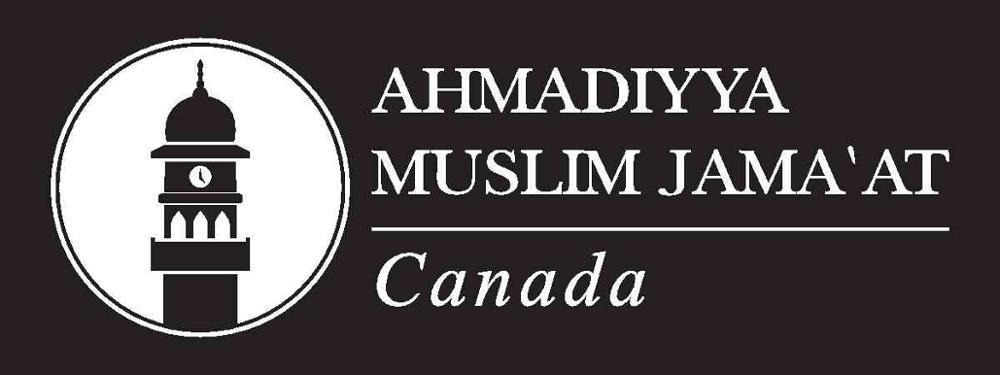The Funeral Prayer
After bathing and wrapping the body in a shroud, the body should be carried to the place where the Funeral Prayer is to be performed. The Funeral Prayer is held in the open or in a place built for that purpose called Janaza Gah. Funeral prayer is an integral part of the proceedings. It's important to note that supererogatory prayers, which go beyond the obligatory prayers, require performing ruku (bowing) and ablution (ritual purification). Those present for the funeral service should arrange themselves in rows behind the Imam. The number of rows should be odd. The Imam should occupy a position ahead of the first row and in the middle, with the body of the deceased resting in front of him. The position of the dead body should be such that the right side of the body should be towards the Ka'ba.
The Imam commences the Prayer by saying Allahu Akbar, i.e; Allah is the Greatest, loudly. The followers say the same in a low tone. The Imam then recites Thanaa and Sura Fatiha silently. He then says Allahu Akbar without raising his hands. The followers say Allahu Akbar too but in a low tone. Then, the whole congregation recites Durood silently. After that the Imam says Allahu Akbar for the third time audibly and the particular prayers for the deceased as given below, are recited. The Imam then says Allahu Akbar for the fourth time and, turning his face towards the right says Assalamo alaikum wa Rahmatullah, and turning his face towards the left repeats the same to mark the end of the Prayer.
The followers, too, say Assalamo alaikum wa Rahmatullah, in a low tone and also turn their faces to the right and left.
There is no Ruku or Prostration in the Funeral Prayer. Funeral Prayer in absentia can also be offered for a deceased person, especially for prominent people or in a case when few Muslims have offered the original Funeral Prayer. To offer a Funeral Prayer for a Muslim is obligatory for the body of all Muslims. It is called Fardh-i-Kifaya. Thus if only a few people offer the Funeral Prayer they are deemed to have done it on behalf of all Muslims. The rest of the Muslim Community is therefore absolved from the obligation of performing the Funeral Prayer.
If the deceased is an adult, male or female, the following Prayer is recited:
الّلھمَّ اغفِر لِحیّنا و مَیّتِنا و شَاھِدِنا و غَآ ئيبِنا
وصَغِیرِنا و َکبِیرِنا و ذَکَرِنا و اُنْثانا ۔ الّٰلھُمَّ
مَنْ أحْیَیْتَه مِنّا فأَحْیِهِ علیَ الایْمانِ الّلھُمَّ لا
تَحْرِمْنا أَجْرُہُ وَلا تُضِلَّنا بَعْدَہُ
Transliteration:
Allahumaghfir lihayyina wa mayyitina wa shahidina wa ghaibina wa saghirina wa kabirina, wa Thakarina wa unthana. Allahumma man ahyaitahu minna fa ahyihi 'alal Islam, wa man tawaffait-tahu minna fa tawaffahu 'alal-Iman. Allahumma la tahrimna ajrahu wala taftinna ba'dah.
Translation:
O. Allah, forgive our living ones and our deceased ones and those of us who are present and those who are absent, and our young ones and our old ones and our males and our females.
O Allah those of us whom Thou grantest life, keep them firm on Islam, and those of us whom Thou causest to die, cause them to die in the faith. Deprive us not, O Allah, of the benefits relating to the deceased and subject us not to trial after him. (Ibn Maja Kitabul-Janaiz, Bab-ud-Dua fis-Salati alal janazah page 107).
The particular prayer for a deceased male child
الّلھُمَّ اجْعَلْہُ لَنا سَلَفاً و فَرَطاً ، واجْعَلْہُ لنا
أجْرً وذُخْرً واجْعَلْہُ لنا شَافِعاً مُّشَفِّعاً
Transliteration:
Allahummaj'alhu lana salafan wa faratan, waj'alhu Iana ajran wa thukran,waj'alhu lana shafi'an wa mushaffa'a.
Translation:
O Allah make him our forerunner, and make him, for us, a reward and a treasure, and make him for us a pleader and accept his pleading.
Particular prayer for a deceased female child
الّلھُمّ اجْعَلْھا لنا سَلَفاً وَّ فَرَطاً وَّذُخْراً وّ اجْراً
و شَافِعَۃ و مُشفَّعَۃً
Transliteration:
Allahumj 'alha lana salafan wa faratan wa dhukhran wa' mushffa'ah.
Translation:
O Allah makes her our forerunner, and makes her, for us, a reward and a treasure, and make her for us a pleader and accept her pleading.
Some things to note about the Funeral Prayer:
- There is no Ruku or Prostration in the Funeral Prayer.
- Funeral Prayer can also be performed in absentia for a deceased person, especially for prominent people or in a case when few Muslims have offered the original Funeral Prayer.
- To offer a Funeral Prayer for a Muslim is obligatory for the body of all Muslims. It is called Fardh-i-Kifaya. Thus if only a few people offer the Funeral Prayer they are deemed to have done it on behalf of all Muslims. The rest of the Muslim Community is therefore absolved from the obligation of performing the Funeral Prayer.
- A single Funeral Prayer can be performed for a number of dead persons at the same time.
- If a dead body is to be transported a considerable distance prior to burial, then the Funeral Prayer must be performed before such transportation commences.
- More than one Funeral Prayers may be performed for the same person, usually at two different locations.
- Women may join in the Funeral Prayer. However, when such Prayer is performed at the graveyard, it is generally recommended that women not accompany the burial party due to their softer hearts.
- Funeral Prayer is not offered for a person who took his or her own life.
